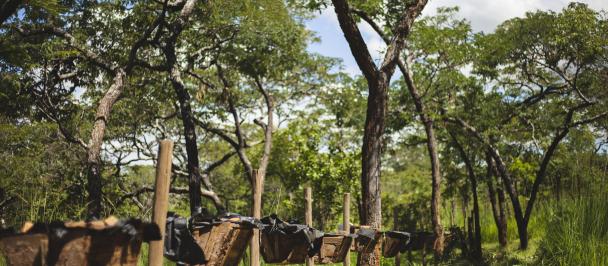Zanzibar’s Biodiversity Finance Plan: A Crucial step towards Sustainable Development and Conservation
May 29, 2023

Zanzibar is a remarkable destination renowned for its stunning marine, coastal, mangrove, and terrestrial ecosystems. This tropical paradise is home to diverse and vibrant biodiversity, supporting socio-economic activities such as fisheries, seaweed farming, and tourism. However, the delicate ecological balance and biodiversity of Zanzibar face numerous threats, including habitat loss, unsustainable harvest of biodiversity resources, climate change and invasive species. Addressing these challenges requires adequate finance resources, institutional capacities, effective policies, and institutional arrangements.
Thankfully, the government of Zanzibar has taken a significant step forward by preparing and approving the Biodiversity Finance Plan (BFP) in 2022. This plan aims to bridge the financial gap in biodiversity conservation, ensuring the safeguarding of Zanzibar’s rich biodiversity and contributing to Convention on Biological Diversity (CBD) Targets and SDGs.
The BFP identified 13 priority finance solutions that can help reduce the financial needs of around 14 million usd per year, thus safeguarding the biodiversity in Zanzibar, in turn contributing to Convention of Biological Diversity biodiversity Targets and Sustainable Development Goals. Notable solutions in the plan include crowdfunding for the restoration of coastal forests, mangroves, and beach areas, as well as payments for ecosystem services. Moreover, the plan suggests, promoting biodiversity conservation through subsidies for household clean energy sources and revenue retention schemes for Protected Areas (PAs).
Zanzibar has created an enabling implementation environment for the BFP, with strong national and international commitments and a high-level political will. The coordination structure of BIOFIN plays a vital role in ensuring the success of the BFP. Additionally, Zanzibar’s Green Legacy Initiative for re-greening the region and the Blue Economy Policy of 2020, along with its Implementation Strategy, demonstrates the government’s dedication to biodiversity conservation. The BFP’s finance solutions align well with the marine spatial planning (MSP) approach, which focuses on sustainable uses such as fisheries.
Immediate steps for the implementations the BFP include reviewing the tourist entrance fee structure and adopting a digital voucher system for the fees collection, integrating biodiversity into the Public-Private Partnership (PPP) framework, and implementing PPP investments for protected areas in Zanzibar. Furthermore, ongoing assessments are being conducted to identify potentially harmful subsidies in seaweed farming and fisheries within the Blue Economy, while a PPP framework for Zanzibar’s re-greening is being prepared and implemented to contribute to the "GREEN Legacy" program.
The BFP represents a crucial and timely intervention to safeguard Zanzibar’s biodiversity. It provides an opportunity for the government to promote sustainable development by encouraging socio-economic activities that do not threaten biodiversity and the environment at large. With effective implementations of the prioritized finance solutions outlined in the BFP, given the necessary resources and favorable implementation environment, biodiversity conservation becomes not only possible but achievable.
To learn more about BIOFIN 2022 - 2026 click HERE

 Locations
Locations